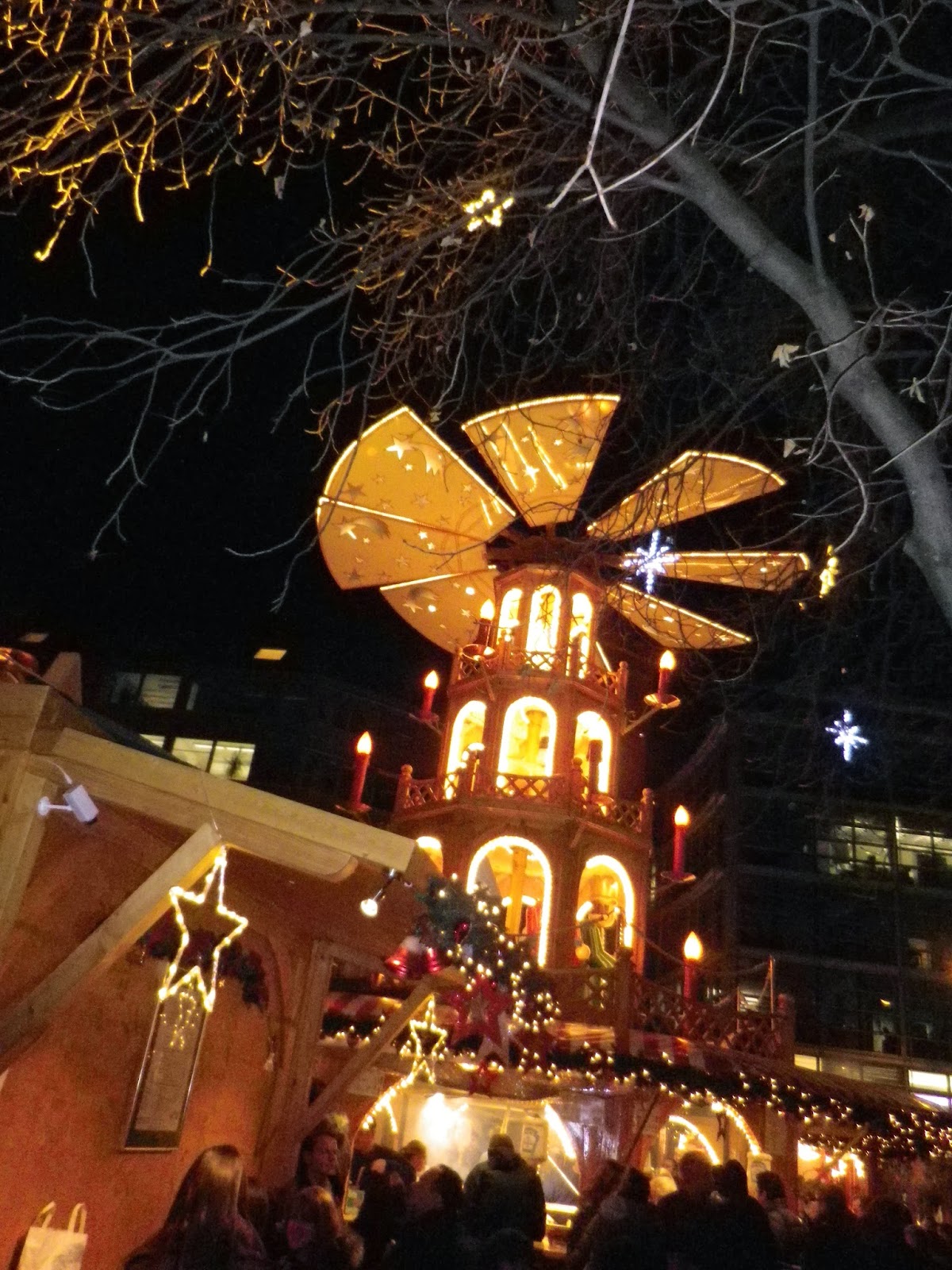Our second round with Munich was longer, the Christmas
Market was gone, we stayed further out of the city, and I was sick for the
duration of the visit. My fever and uncooperative stomach made things harder to
appreciate, but didn’t keep me bedridden. The first day we visited the Allianz
Arena, home to the greatest team to play the beautiful game. I am not a
religious man but the feelings I got as I approached the site were as close as
a secular man can get to religious fervour, or maybe it was fever.
The highlight of the arena was the F.C. Bayern museum, which
chronicled the past of the club and included some especially interesting bits
about wartime Bayern Munchen; stories of a Jewish trainer, buried trophies, and
farmers supplying the travelling team with extra food when provisions were
scarce.
The next day we visited the Deutches Museum, which was
overwhelmingly large, you could take a week and still have much to see. Luckily
the writing was mostly in German so that sped things along and we had to accept
that we could not digest such a massive amount of science and tech history in
one afternoon.
Our last day in Munich we visited the hunting and fishing
museum which had a great collection of old hunting implements including a flask
made from a large lobster claw. The fishing section included some west coast
hooks that reminded us of Haida Gwaii (though these were from Bella Coola, they
were similar). The museum also had a temporary collection of masks representing
the Krampus (http://en.wikipedia.org/wiki/Krampus), the demonic character who
deals with the bad children around Christmas time. The masks are carved from
wood and in addition to being cool because they look like something a member of
GWAR might wear it is nice to see the darker side of traditions, in North
America even the Grinch ends up with a big heart.
Rothenburg ob der Tauber
For New Years and Leanne’s birthday we decided to get out of
the city and went to a small medieval walled village northwest of Munich.
Rothenburg ob der Tauber was quite possibly one of my favourite places I have
visited, though the signs were clear enough that I would not want to visit in
the high tourist season.
Inside the walls all the streets were narrow, winding, and
cobbled. Many buildings were timber-framed and despite knowing that much of
what we were seeing was re-built there was enough of the original that it all
felt authentic. We spent our days walking the streets, the walls, and the paths
into the valleys surrounding town. Jesse and Gus took advantage of the frequent
holes in the wall to volley arrows at the ever-approaching Orcs.
We also took in the Christmas museum, the Criminal museum,
and enjoyed hitting all the tourist shops that gave evidence of a far busier
tourist season with the shop signs clearly printed in Japanese, and Bundesliga
jerseys of Japanese players displayed prominently.
The Criminal museum like the fishing museum reminded me of
Haida Gwaii, they had a fair number of shame masks on display and I remembered
‘the helmet of shame’ that sits in my classroom back in Masset. My helmet of
shame was a student project that has been turned into a popular joke, but now I’ll
have something to go with it and masks of shame will proliferate at GMD next
year.



